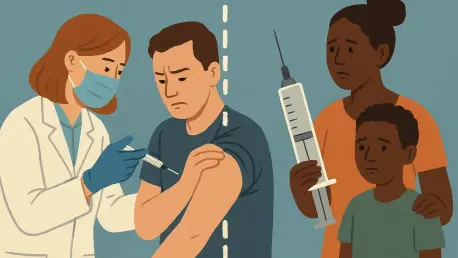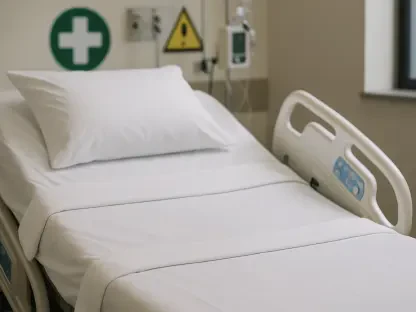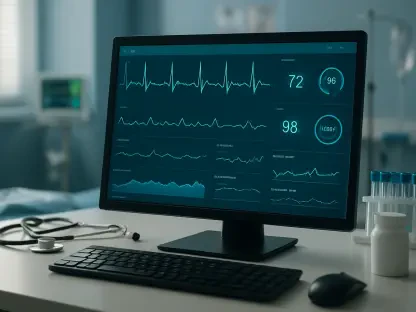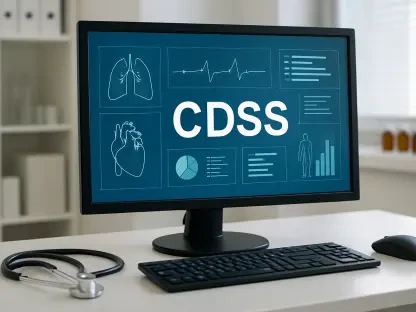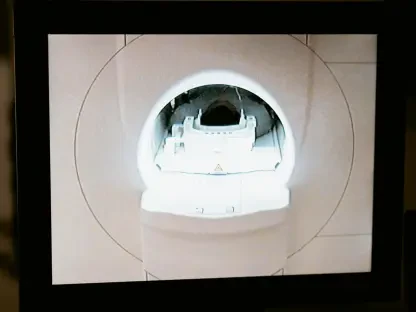Imagine a parent in a rural state, desperate to protect their child from a preventable disease, only to discover that local policies have blocked access to essential vaccines, highlighting a stark reality for many across the United States. Disparities in COVID-19 vaccine distribution have ignited heated debates and exposed systemic flaws in healthcare equity. This roundup dives into the fragmented landscape of vaccine access, gathering insights, frustrations, and recommendations from patients, healthcare providers, and public health advocates. The purpose is to illuminate the diverse perspectives on this pressing issue and explore potential pathways to bridge the gap in care.
Unpacking the Crisis: Voices from the Frontlines
Disparities in vaccine access have created a patchwork system where geography often determines health outcomes. Patients in conservative states frequently encounter restrictive policies aligned with federal limitations, forcing some to travel long distances for shots. A mother from Louisiana shared the burden of crossing state lines to vaccinate her child, highlighting the financial and emotional toll of such barriers. Her story echoes a broader sentiment of frustration among families who feel abandoned by a system meant to protect them.
Healthcare providers, meanwhile, express deep concern over the lack of clear guidance. A physician from Florida described the challenge of navigating conflicting state and federal rules while facing growing patient skepticism. This confusion often leads to delays in care and strains the doctor-patient relationship. The emotional exhaustion of addressing misinformation daily adds another layer of difficulty for medical professionals striving to uphold their duty.
Public health advocates point to the urgent need for policy reform to address these inequities. Many argue that the current state-driven approach, influenced heavily by partisan ideologies, undermines national health security. They emphasize that viruses do not respect state borders, making localized restrictions a risk for widespread outbreaks. This perspective underscores a call for unified action to prioritize science over politics in healthcare decisions.
Comparing Perspectives: Ideological Divides and Common Ground
In conservative-leaning regions, state policies often mirror federal restrictions, such as the removal of certain vaccines from recommended schedules for children. Officials in these areas frequently cite concerns over federal overreach or vaccine safety as justification for limited access. This stance has garnered support from segments of the population wary of government mandates, though it leaves many families struggling to find alternative solutions.
Conversely, progressive states have pushed back with protective measures, issuing executive orders to maintain vaccine availability despite federal pushback. Leaders in these areas argue that access to preventive care is a fundamental right, not a political bargaining chip. While this approach has ensured broader coverage for some, it also fuels accusations of inconsistency, as neighboring states operate under entirely different rules, creating confusion for residents near borders.
Despite these divides, a shared concern emerges across the spectrum: the erosion of trust in public health institutions. Both sides acknowledge that conflicting messages from authorities sow doubt among the public, complicating efforts to boost vaccination rates. Some advocates suggest that rebuilding confidence requires transparent, science-driven communication, a point of agreement that could serve as a starting point for dialogue amid the polarization.
Challenges for Providers: Navigating a Polarized Landscape
Healthcare providers find themselves at the epicenter of this crisis, grappling with unclear guidelines that vary by region. In restrictive states, doctors face heightened obstacles, from limited vaccine supplies to legal risks when advising patients on cross-state options. This environment often forces medical professionals to spend more time on administrative hurdles than on patient care, a situation described as deeply frustrating.
Patient skepticism, fueled by anti-vaccine rhetoric from certain officials, adds another layer of complexity. Physicians report an increase in questions about vaccine safety, often rooted in misinformation spread by trusted community figures. Addressing these concerns requires patience and tailored communication, but many providers feel ill-equipped to counter deeply ingrained doubts without broader institutional support.
The emotional toll on medical staff cannot be overlooked. Burnout rates are climbing as doctors balance clinical duties with the stress of navigating a politically charged field. Some professionals worry that without systemic change, the strain could lead to a shortage of willing providers, further exacerbating access issues. This insight highlights the need for policies that not only address supply but also support the workforce delivering care.
Public Health Implications: Warnings and Recommendations
Public health experts warn that the current disparities pose a significant threat to national well-being. With vaccination rates lagging in certain regions due to policy barriers, the risk of localized outbreaks spilling over into other areas grows. This concern is amplified by the interconnected nature of modern travel, which can rapidly spread diseases across state lines if preventive measures remain uneven.
Recommendations from advocates focus on establishing consistent federal guidelines to override the current patchwork of state policies. A unified standard, they argue, would reduce confusion and ensure equitable access regardless of location. Additionally, cross-state initiatives to allow seamless vaccine distribution are proposed as a temporary fix to help families in restrictive areas obtain necessary care without undue hardship.
Another key suggestion centers on amplifying science-based education to combat misinformation. Community outreach programs, supported by trusted local figures, could play a vital role in rebuilding public confidence. These efforts, paired with transparent policymaking, are seen as essential steps toward mending the fractures in the healthcare system and preventing future crises of this magnitude.
Reflecting on a Divided System: Steps Forward
Looking back, the discussions around vaccine access disparities revealed a healthcare system strained by ideological divides, where patients and providers alike bore the burden of inconsistent policies. The insights gathered from various voices painted a picture of frustration but also of resilience, as communities sought ways to navigate the challenges.
Moving forward, actionable steps emerged as critical for progress. Advocating for federal consistency in vaccine guidelines stands out as a priority to eliminate the geographic lottery of care. Supporting initiatives that ease cross-state access can serve as immediate relief for struggling families. Additionally, investing in education campaigns grounded in scientific evidence offers a long-term strategy to restore trust and ensure that health decisions are guided by facts rather than politics. These measures, if pursued collaboratively, hold the potential to reshape the landscape of public health for the better.
